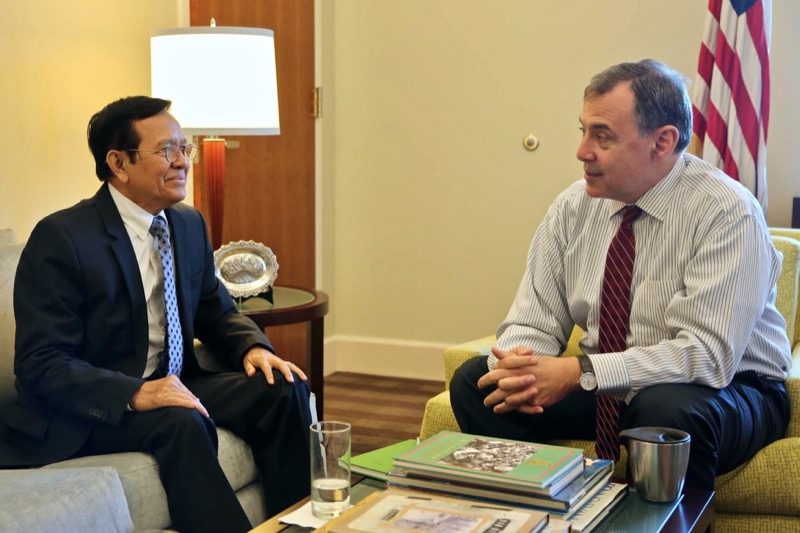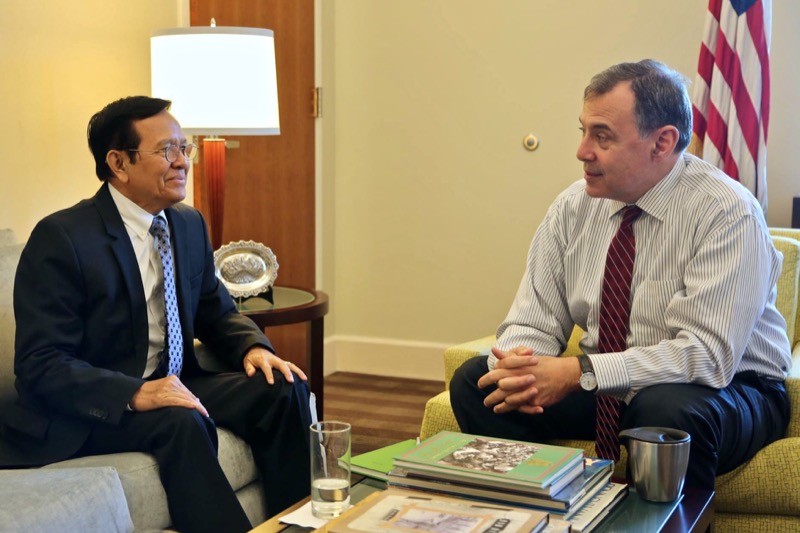A U.S. congressman on Wednesday called on the CPP to abandon an imminent vote on legislation that would give the Cambodian government sweeping new powers to abolish its political rivals, the same day the U.S. ambassador met with CNRP acting President Kem Sokha to discuss the bill.
Alan Lowenthal, a Democrat whose California constituency includes the largest Cambodian community in the U.S., said the proposed amendments to Cambodia’s Law on Political Parties would dangerously entrench the long-ruling CPP’s control of the state.

“This Law on Political Parties would give the government far-reaching powers to suspend political parties at will,” he said. “I urge the Cambodian National Assembly to set aside this undemocratic law that dangerously moves Cambodia toward being a one-party state and to allow the Cambodian people to freely choose their own leaders.”
The CPP, which holds a majority in the Assembly, is expected to pass the amendments when parliament convenes for a special session on Monday.
Once passed, the Supreme Court will be allowed to dissolve any party over the conviction of a single top official and bar its entire leadership from political activity for five years. Before a case even reaches the court, the Interior Ministry will have discretion to suspend a party for as long as it wants over a list of vaguely worded infractions including “incitement that would lead to national disintegration.”
Prime Minister Hun Sen, who has ruled the country for more than 30 years, has made clear that the changes are aimed at the CNRP, which nearly defeated the CPP in national elections four years ago and remains its only viable challenger in 2018.
CPP lawmaker and spokesman Chheang Vun could not be reached for comment. But National Assembly secretary-general Leng Peng Long, who is appointed by the ruling party, dismissed the U.S. congressman’s concerns.
“What the ruling party does is correct according to democracy,” he said. “What we do is for the national advantage, like what [U.S. President] Donald Trump has done, because he understood that what he did was correct.”
As an example, he cited Mr. Trump’s travel ban on seven majority-Muslim countries. However, a federal U.S. court soon blocked the ban, writing that legal challenges contending the president’s executive order was unconstitutional were likely to succeed.
Also on Wednesday, Mr. Sokha met with U.S. Ambassador William Heidt at the U.S. Embassy in Phnom Penh. The embassy said they discussed the proposed legal amendments and “the latest political developments” but declined to elaborate.
On his Facebook page on Thursday, Mr. Sokha said he also met with the ambassadors of France, Germany, the U.K. and the E.U.
Despite the potentially severe consequences of the amendments, foreign governments have stayed largely quiet since Mr. Hun Sen proposed them on February 2.




